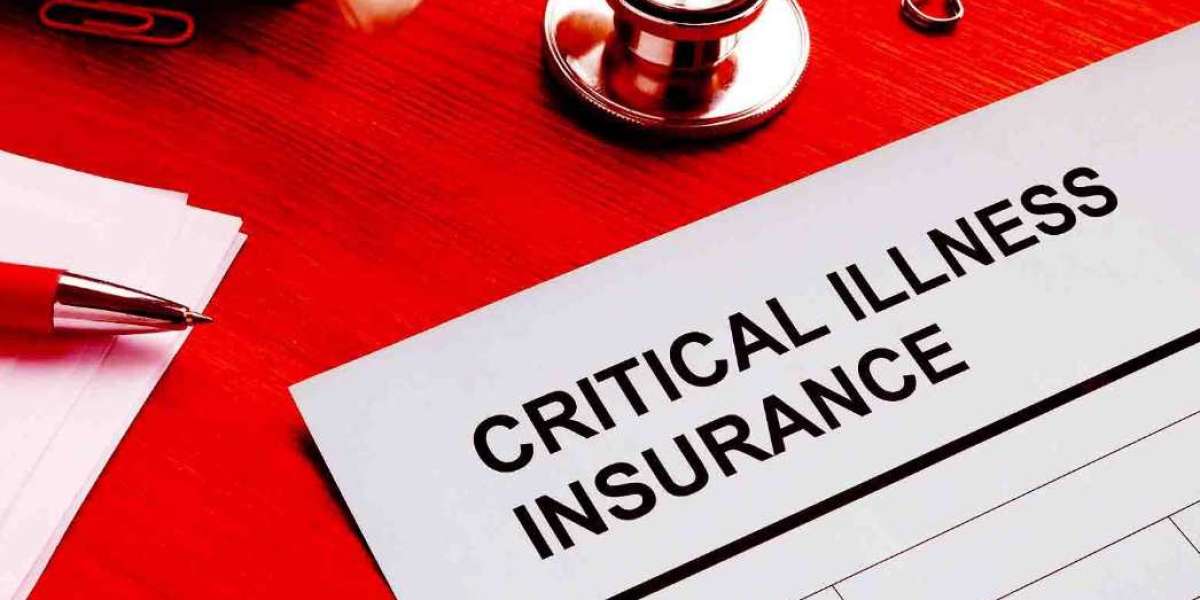Life is full of uncertainties, and health challenges are among the most unpredictable. While no one likes to think about being diagnosed with a severe illness, the reality is that medical costs, lost income, and lifestyle adjustments can create overwhelming financial stress. This is where critical illness insurance plays a vital role.
Critical illness insurance provides a lump-sum payment if you are diagnosed with a covered condition such as cancer, stroke, heart attack, kidney failure, or other major illnesses. Unlike traditional health insurance, which typically pays medical bills, this benefit can be used however you need—whether it’s covering household expenses, paying off debts, or seeking specialized treatment.
But who really needs this type of insurance? Let’s explore the key groups of people who should strongly consider buying a critical illness coverage plan in Markham.
1. Primary Breadwinners
If you are the main source of income for your household, your family’s financial stability depends on your ability to work. A serious illness could leave you unable to earn an income for months—or even years.
Critical illness insurance provides a financial safety net that ensures your family can continue paying for necessities like rent or mortgage, utilities, groceries, and tuition fees while you focus on recovery. For breadwinners, this coverage is often not just a choice, but a necessity.
2. Individuals with a Family History of Serious Illness
Your family’s medical history can provide clues about your own risk of developing certain illnesses. If conditions such as heart disease, cancer, or stroke run in your family, your chances of facing a similar health issue may be higher.
Having critical illness coverage in place ensures you are financially prepared for such a possibility. It helps reduce the worry of how you or your loved ones would cope financially if an inherited health risk became a reality.
3. Self-Employed Professionals and Business Owners
Unlike salaried employees who may have access to some form of workplace benefits, self-employed individuals and business owners often do not have income protection or extended health benefits. If illness strikes, the loss of income can be immediate and devastating.
Critical illness insurance can fill this gap by providing funds to keep your business afloat, cover ongoing expenses, or replace lost personal income. For entrepreneurs, it ensures that a health crisis doesn’t jeopardize both your livelihood and your long-term goals.
4. Young Professionals Looking Ahead
Younger individuals often assume that critical illness insurance is something to worry about later in life. However, buying a policy early has two major benefits:
Lower Premiums: Insurance costs are generally lower when you are younger and healthier.
Future Security: Having coverage in place ensures you are protected well before health issues typically become more common.
For millennials and young professionals building their careers, this coverage can be a cost-effective way to protect future income and financial security.
5. Parents with Dependents
If you are raising children, you know that their needs never pause, even during tough times. A serious illness can disrupt your ability to provide for your family, but bills like daycare, school fees, and extracurricular activities continue.
Critical illness insurance provides peace of mind, allowing parents to focus on recovery without worrying about how their children’s needs will be met.
6. Individuals with Mortgages or Large Debts
A major health crisis could make it difficult or impossible to keep up with loan repayments. Missing payments may result in financial penalties or even losing your home.
A critical illness payout can help cover your mortgage, car loan, or credit card debt during recovery. This ensures that your illness doesn’t force your family into a financial crisis or put your assets at risk.
7. People Without Strong Workplace Benefits
Many employers offer some form of health and disability coverage, but it may not be enough to address the full financial impact of a major illness. If your workplace plan is limited—or if you don’t have one at all—critical illness insurance can act as an essential supplement.
It gives you the flexibility to use the payout in ways traditional health benefits often don’t allow, such as covering out-of-pocket treatment costs or travel expenses for specialized care.
8. Pre-Retirees and Retirees
As people approach retirement, they often worry about outliving their savings. A serious illness can quickly drain retirement funds if unexpected medical or lifestyle costs arise.
Critical illness insurance helps protect your retirement savings by providing a lump-sum benefit that can be used for care, treatment, or living expenses. This ensures you don’t have to dip into your nest egg to manage the financial fallout of a diagnosis.
Why Critical Illness Insurance Matters for Everyone
While some groups may have a stronger need than others, the truth is that critical illness can impact anyone at any time. Medical advances have improved survival rates, but recovery often comes with significant costs—both financial and emotional. Having coverage ensures you can focus on what matters most: getting better.
Final Thoughts
So, who should consider buying critical illness insurance? The answer is clear: almost everyone. Whether you’re a young professional, a parent, a business owner, or someone nearing retirement, this coverage provides a valuable layer of financial protection.
A critical illness diagnosis is difficult enough without the added stress of financial hardship. By working with a qualified insurance advisor, you can find a plan that fits your needs and budget, giving you and your loved ones peace of mind no matter what the future holds.


